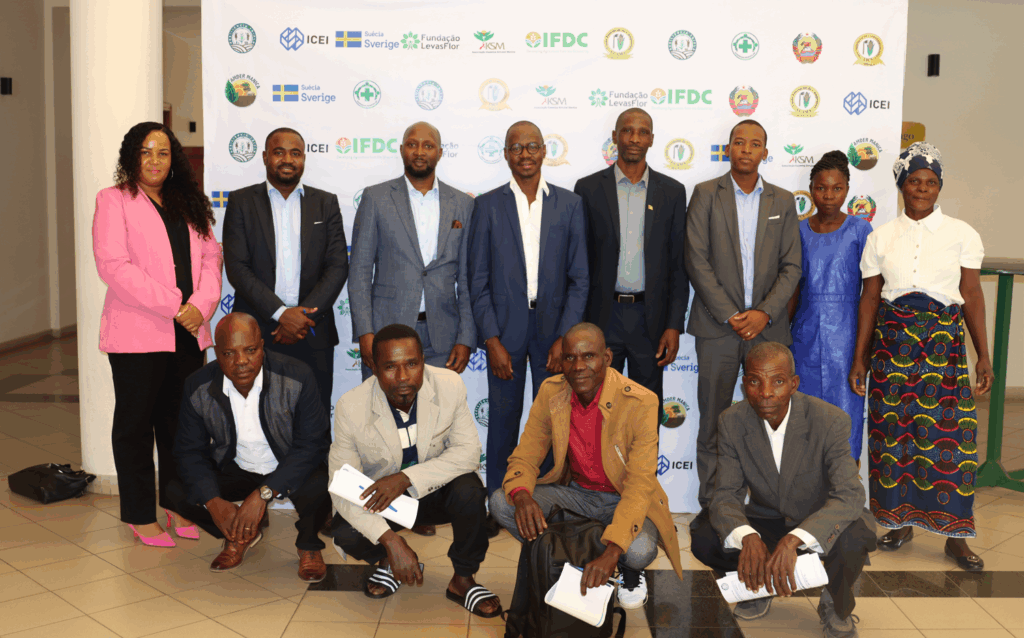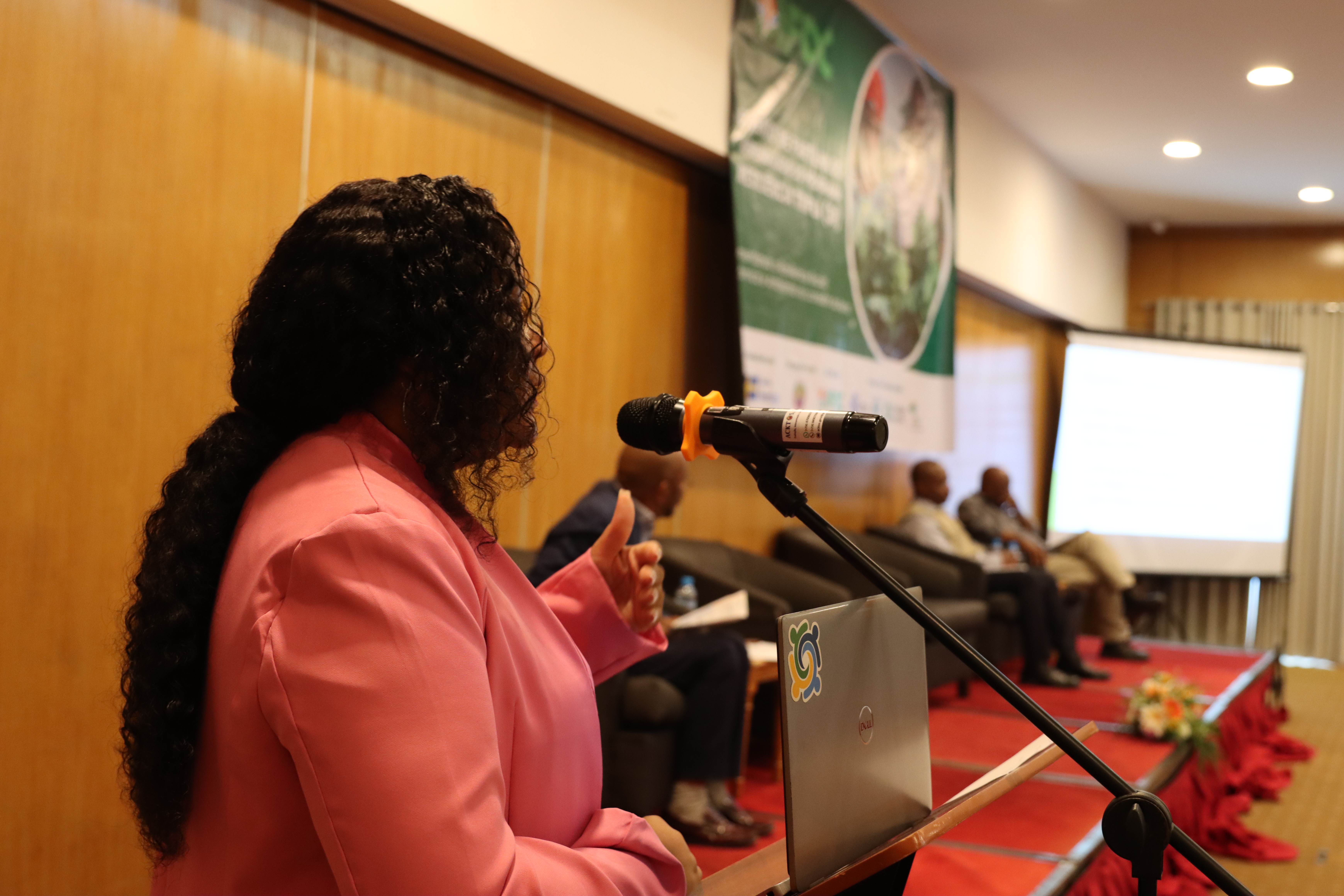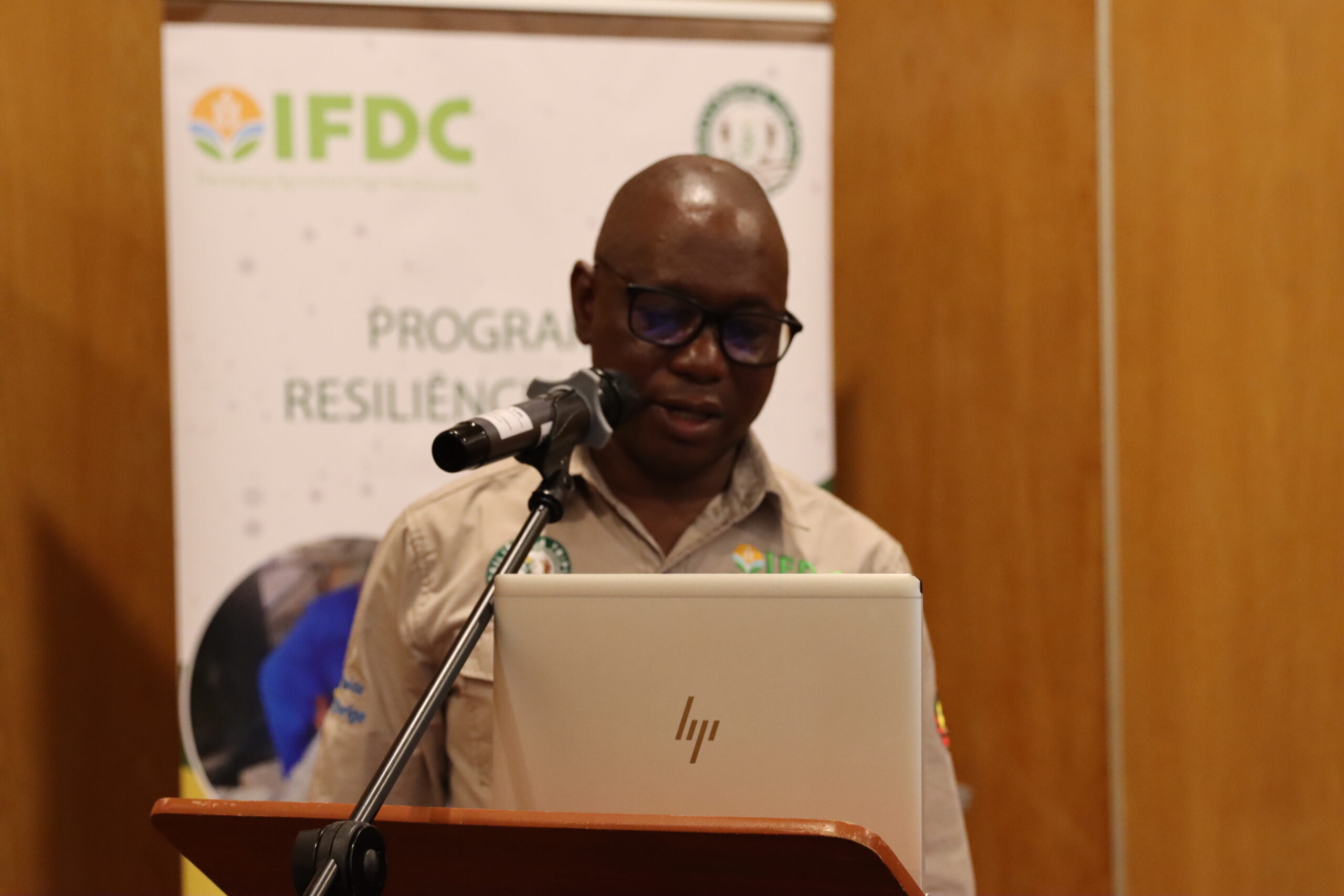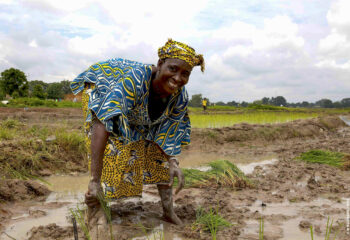
IFDC and its consortium partners, hosted the first Triple Resilience (3R) Knowledge Sharing and Learning Event in Maputo, Mozambique, marking a key milestone in efforts to strengthen resilience along the Beira Corridor.
The event brought together partners from government, civil society, the private sector, and communities to exchange insights and strengthen collaboration around social, economic, and climate resilience.
The learning event assembled a diverse group of participants, including representatives from the Embassy of Sweden, provincial and district government officials, private sector stakeholders, civil society organizations, and community leaders in addition to IFDC and its consortium partners, which include the LevasFlor Foundation, the International Economic Cooperation Institute (ICEI), Norwegian People’s Aid (NPA), Associação Kwaedza Simukai Manica (AKSM), União Provincial Dos Camponeses de Manica (UCAMA), União Provincial de Camponeses de Sofala (UPCS), and the Mozambican Association for Sustainable Rural Development (AMDER).
The gathering facilitated rigorous evidence sharing, strategic discussions, and the consolidation of best practices to enhance recovery and fortitude across sectors.
“The success of this program is not measured by donor satisfaction but by the lasting impact it creates for vulnerable families.”
Idelson Anselmo, Program Officer at the Embassy of Sweden
Opening the event, Head of Cooperation at the Embassy of Sweden in Mozambique Karin Andersson underscored the urgency of addressing the compound shocks facing communities: climate disasters, economic instability, and social vulnerabilities. She acknowledged the program’s integrated and locally driven approach in enabling communities in Manica and Sofala to recover, rebuild, and envision more inclusive and sustainable futures.

“Your commitment to strengthening resilience in Mozambique is both inspiring and essential,” Andersson declared to program attendees.
She also confirmed Sweden’s steadfast support and commended the collaborative spirit among government, civil society, and the private sector.
Building on Andersson’s perspective, Jabula Arlindo Zibia, Director of the National Directorate of Agriculture, reaffirmed the Government of Mozambique’s dedication to bolstering resilience and food security in the Beira Corridor, indicating the vital role of the 3R program and its partners in improving farmers’ livelihoods.
Zibia expressed his appreciation saying, “We thank the Embassy of Sweden for embracing this initiative, and IFDC and all implementing partners for improving the living conditions of our farmers.”
He also discussed ongoing reforms in national policies that aim to enhance food availability and encouraged continuous knowledge exchange and open dialogue to replicate successful, evidence-based approaches in underserved regions.
Strong collaboration with local authorities are essential for lasting impact aligned with Mozambique’s national priorities.

Amelia Moreira, IFDC Country Representative and expert in natural resource management and climate-smart agriculture, further expounded the importance of coordination along the Beira Corridor. She commended provincial governments for fostering partnerships that reduce duplication and maximize impact, citing the successful collaboration between 3R and the Mangwana Project.
Moreira also advocated for innovative, climate-resilient agricultural practices, describing the trials of hybrid maize and flood-tolerant rice varieties in resettlement districts, which are helping farmers adapt to climate shocks and strengthen food security.
From the donor’s point of view, Idelson Anselmo, Program Officer at the Embassy of Sweden, reinforced the Embassy’s unwavering commitment to ensuring the 3R program delivers meaningful outcomes for the communities it serves.
“The success of this program is not measured by donor satisfaction but by the lasting impact it creates for vulnerable families,” he asserted.
Anselmo explained that the donor’s role is not to dictate implementation but to ensure interventions are evidence-based, inclusive, and responsive to local needs. Focusing on the strategic use of limited resources, he pointed to innovations in cashew cultivation and climate-smart practices, demonstrating that resilience is a shared responsibility among farmers, partners, and funders alike.

A key feature of the learning event was the exhibition space, where consortium members showcased post-harvest handling and food processing techniques, displaying locally adapted solutions that add value to agricultural products and minimize losses. These displays celebrated community-driven innovation and reinforced the program’s focus on sustainability, inclusion, and the transfer of practical knowledge.
Complementing the exhibition were rich panel discussions, which brought together government officials, community representatives, technical experts, and implementing partners. These panels facilitated honest dialogue around what is working, what remains challenging, and how different actors can align their efforts more effectively.
3R Program Manager Joshua Muradzicua presented the program’s commitment to building social, climatic, and economic resilience by empowering local associations, promoting sustainable agriculture, and fostering inclusive governance.
“Women, youth, and demobilized individuals are central in this initiative,” he noted, adding that adoptive behavioral change by the targeted partners can improve social and practical competence to meet the demands of everyday challenges.
Technical sessions enhanced learning by addressing key challenges in building resilience. Under the Food and Agriculture Organization of the United Nations’ Strategic Objective 1 (social resilience), participants highlighted barriers like limited access to services and association registration, often due to lack of ID documents, particularly for women.

Norberto Simbe of AMDER Manica raised concerns about the stigma facing demobilized individuals, rooted in past conflict and failed reintegration. The 3R program is tackling these issues through support in employment, literacy, savings groups, and climate-resilient agriculture. Simbe urged the design of long-term social inclusion strategies.
On climate resilience (SO2), discussions focused on early warning systems for El Niño, localized irrigation, addressing counterfeit seeds, and youth involvement in climate-smart agriculture. Economic resilience (SO3) sessions stressed enforcing standards for quality produce, private sector engagement, and sustaining market systems. Savings groups and seed multiplication efforts were noted as key drivers of local economic growth.
The event underscored the importance of collaboration, local engagement, and evidence-based solutions in building lasting resilience. By bringing together diverse partners and sharing practical insights, the 3R program is paving the way for stronger, more self-reliant communities capable of withstanding future social, economic, and climate challenges.
The Triple Resilience (3R) program (2023-2027) aims to build and strengthen social, climate, and economic resilience in Mozambique by accelerating the shift from humanitarian aid to long-term sustainable development. 3R is funded by the Embassy of Sweden and is implemented by IFDC in partnership with Norwegian People’s Aid (NPA), Associação Kwaedza Simukai Manica (AKSM), LevasFlor Foundation, União Provincial Dos Camponeses De Manica (UCAMA), União Provincial de Camponeses de Sofala (UPCS), and the International Economic Cooperation Institute (ICEI).




